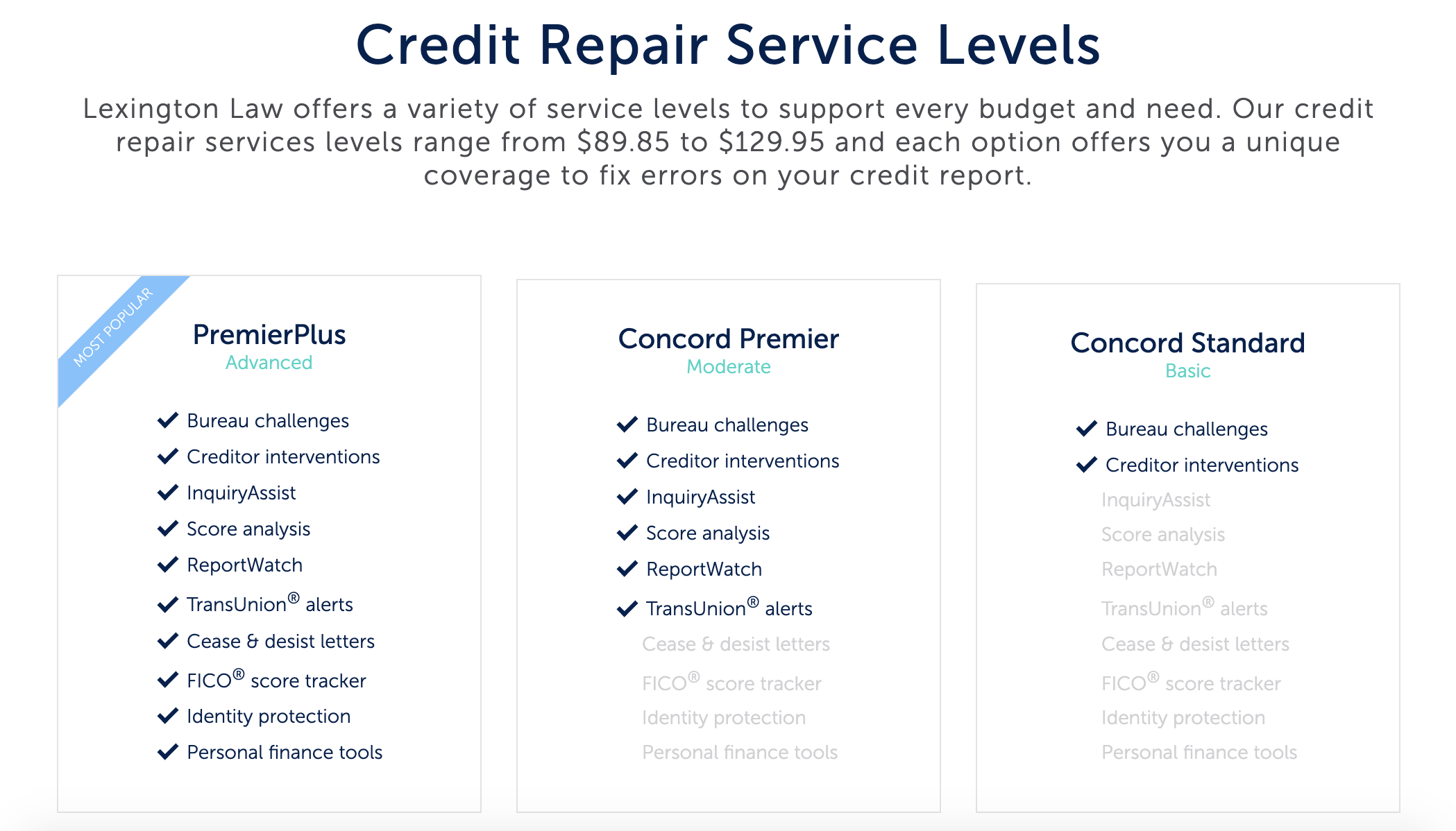This post is sponsored by Lexington Law.

When was the last time you checked your credit report? What about your credit score?
Can’t remember?
You’re not alone. Less that 53% of adults under 30 don’t know their credit score. But that doesn’t mean you shouldn’t worry.
Our credit scores can have a massive impact on our financial lives. From the interest rates we pay to where we’re employed to our credit limits and car insurance premiums, a poor or low credit score can severely limit your financial choices. What’s more, there are credit issues that you might not even know about that can impact you down the road, like with these horror stories.
If you don’t know where to start with the unfair negative items on your report or are unsure of even how to check your report and score (this is a handy guide), credit repair might be an option for you.

What To Know About Credit Repair
Did you know that there are three Federal statutes that protect your rights as a consumer? Here’s a rundown of the three statutes and what they mean in very high-level language:
1. The Fair Credit Reporting Act (FCRA), requires that credit reporting agencies give an accurate report of a consumer’s credit history. This is to ensure that misreported information isn’t used against a consumer.The Fair and Accurate Credit Transactions Act (FACTA) was created to amend the FCRA. In summary, it focuses primarily on the prevention of identity theft and resolving consumer disputes. It also improves the accuracy of consumer records and the access consumers have to credit information.
2. The Fair Credit Billing Act (FCBA)of 1974 is what protects you as a consumer from unfair billing practices from companies and organizations that result in billing errors.
3. TheFair Debt Collection Practices Act, protects you against “abusive, deceptive, and unfair debt collection practices.” There are certain things debt collectors can and can’t do. Many times, though, they will toe the line in order to get their money back. That’s where this statute steps in.
All of these legal acronyms can be a bit confusing. Unless you’re familiar with them, it can be hard to know what’s right from left. If you’re already familiar with your report and history, it will be easy to spot discrepancies get ahead of them. But if you’re not, it can be challenging to spot unfair items. And it can be overwhelming to know exactly how to remove them or even where to start. And that’s where Lexington Law steps in.

Their clients have seen over 70 million removals on their credit reports since Lexington Law was founded in 2004. They are the largest network of credit repair professionals in the United States and employ attorneys and paralegals across 18 states. Ultimately, they are a consumer advocates and work on your behalf to ensure the items on your credit report are fair and accurate to improve your financial life.
How The Credit Repair Process With Lexington Law Works
The first step is making the call for your free consultation. With this call, you’ll receive a free FICO® score and TransUnion Summary report. You will then also be able to discuss your personal credit situation with an experienced credit consultant. In 2020, they provided a total of 2.6 million FREE Credit Report Consultations online and over the phone. And yep, these consultations were free to consumers.
Lexington Law has long-standing relationships with all three credit bureaus to dispute negative unfair items. This relationship allows them to work knowledgeably. Lexington Law provided over 22.3 million challenges and disputes on behalf of their clients in 2020.

Lexington Law also works directly with your creditors to send letters with the substantiated and correct documents advocating on your behalf. By leveraging consumer rights to resolve issues with creditors, data furnishers, and credit bureaus, Lexington Law works to ensure that client credit reports are fair, accurate, and substantiated.
After the initial consultation, if you then decide to move forward with Lexington Law’s credit repair service, you’ll pay $14.99 to pull your full credit reports from TransUnion, Equifax and Experian. You won’t be charged for additional services for five days afterwards.
Full billing works like this:
A one-time first work fee will be charged 5 to 15 days (varies by state) after signing up for our service for work initially completed. The monthly fee begins 30 days (varies by state) after the first work fee is paid. Our service is month-to-month and you may cancel anytime. Like a utility bill you will be charged a final payment after cancellation since billing occurs for services already performed.
The full price depends on your service level. The cost ranges from $89.95 to $129.95. You can see the full cost and service breakdown for Lexington Law here.

Unfair negative items that are addressable have to meet three standards:
- First, items must be fairly reported, pursuant to several consumer protection statutes.
- Second, items must be 100% accurate.
- Third, items must be fully substantiated before appearing within consumer credit reports.
You’ll be able to decide as an individual client which items that meet these standards on your personal credit report should be challenged. The credit repair leaders at Lexington Law work on your behalf to advocate for your consumer rights for a fair, accurate, and substantiated credit report. As mentioned previously, in 2020, they challenged over 22.3 million items each month in total.
Their services operate on a month-to-month basis, so there is no long-term commitment. You can opt out of service once you’ve achieved your credit goals or whenever suits your needs.

How To Know If You Need Credit Repair
Improving your credit score is a way to a better life. And with unfair negative items on your credit report, you’re likely being help back from achieving your financial life. A higher credit score shows that you’re less of a risk to creditors and lenders because you are financially trustworthy. Because our world moves on credit, credit repair is an important step in achieving financial freedom.
If you are struggling with low or poor credit, don’t give up! You can call and speak with credit consultants at Lexington Law, help establish a game plan, and discuss your path to improved credit. It is always worth the effort to improve your financial situation.
